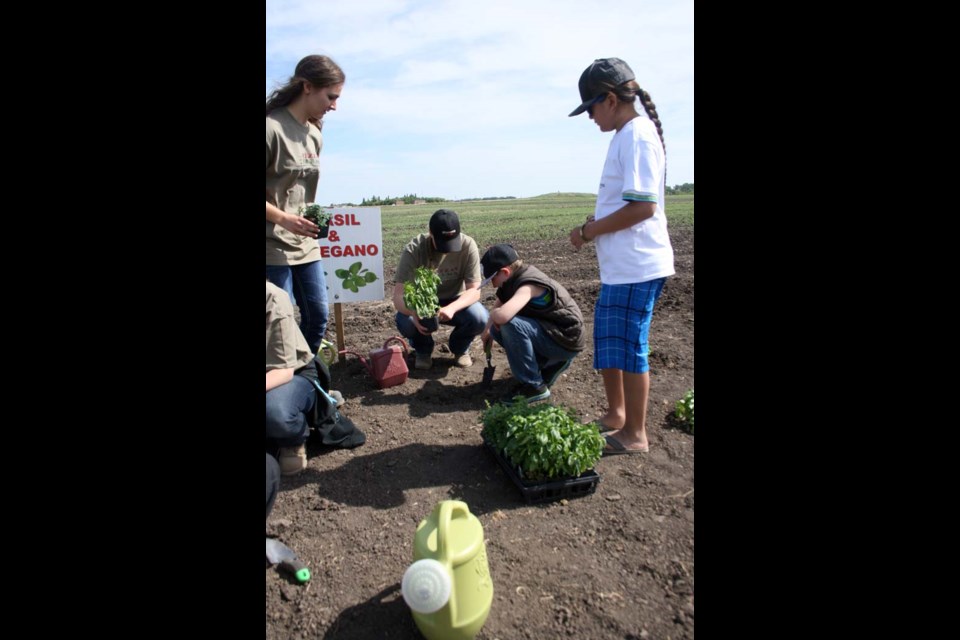Students from Yorkton and area once again took part in planting at the local ‘Pizza Farm’.
Approximately 165 Grade 3 students were out of the classroom learning about agriculture and food production as they planted their pizza farm on June 4 and 5.
“The Pizza Farm is a large circular plot of land partitioned into smaller plots shaped like pizza wedges. Each of the farm’s wedges produce ingredients that can be used in making pizza. This will include wheat for crust, canola for oil, tomatoes, peppers, garlic and herbs for sauce, a pig for pepperoni and ham, and a dairy cow for cheese,” explained a backgrounder.
“The Pizza Farm is designed to increase agricultural awareness within the community and among youth. It will be an interpretive and educational tool for teaching school children about where food comes from and the important role that modern agriculture and technology play in food production. All of the planned educational activities and tours have been connected to key outcomes and indicators from the Saskatchewan Curriculum for grades 3 and 4.
The Saskatchewan Ministry of Agriculture Regional Services Branch and Agriculture in the Classroom teamed up to create Yorkton’s Pizza Farm.
Students planted tomatoes, peppers, onions, garlic and herbs in small plots shaped like pizza slices. Several pizza slices will show the difference between wheat and canola seeded with modern technology and without. Students will also learn about plant growth and nutrient management as they explore multi-media and virtual reality games in Agrium’s Seed Survivor mobile classroom.
In the fall, the same students will return to harvest their crops to see the full cycle of crop production. The ingredients will be used to make pizza back in the classroom.
“Even in rural Saskatchewan, kids are disconnected from agriculture,” said Sara Shymko, Agriculture in the Classroom Executive Director in a release. “This program helps students learn where their food comes from and also fosters an understanding of the importance of modern technology in agriculture.”



